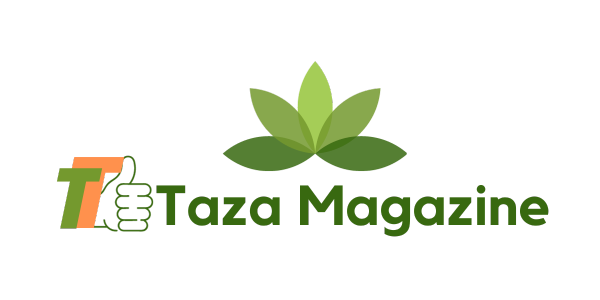4 High-Profile Product Liability Cases That Shook the World

Product scandals have the power to reverberate across industries, leaving a lasting impact on consumers and corporations alike. These high-profile cases not only reveal the potential dangers and ethical lapses associated with certain products but also trigger significant legal battles and public scrutiny.
In this article, we explore four comprehensive and informative sections on high-profile product liability cases that have shaken the world, shedding light on the consequences and lessons learned.
Volkswagen’s Dieselgate: Emissions Fraud and Environmental Fallout
One of the most notorious product scandals in recent history is Volkswagen’s Dieselgate. In 2015, it was revealed that Volkswagen had installed software in their diesel vehicles to manipulate emissions tests, allowing the cars to appear environmentally friendly while emitting harmful pollutants beyond legal limits.
This deception affected millions of vehicles worldwide, resulting in severe environmental consequences. The scandal had far-reaching implications, tarnishing Volkswagen’s reputation, leading to substantial financial losses, and triggering a wave of legal action.
The company faced hefty fines and settlements, including a $2.8 billion criminal fine in the United States, and had to set aside over $30 billion to cover the costs associated with the scandal. Additionally, Volkswagen had to recall approximately 11 million vehicles globally to address the emissions issue and modify the affected cars to comply with regulations.
Dieselgate exposed the dire need for stricter emissions regulations, greater transparency, and improved corporate accountability within the automotive industry.
It prompted regulatory reforms and a heightened focus on emissions testing and compliance across the globe. The scandal served as a wake-up call, highlighting the significant environmental impact of unethical practices and the importance of robust oversight in the automotive sector.
Johnson & Johnson Talcum Powder Scandal: Health Risks and Legal Battles
The Johnson & Johnson (J&J) talcum powder scandal reverberated across the globe, raising concerns about the safety of a widely-used household product. Numerous lawsuits claimed that J&J’s talcum powder products bore links to ovarian cancer and mesothelioma due to potential asbestos contamination.
As the scandal unfolded, evidence emerged suggesting that J&J was aware of the potential risks associated with their talcum powder but failed to adequately warn consumers.
Lawsuits were filed by thousands of individuals alleging that the use of J&J’s talcum powder products had resulted in serious health issues.
In 2018, a Missouri court ordered J&J to pay $4.69 billion in damages to 22 women who claimed that the talcum powder products contributed to their ovarian cancer.
Moreover, according to TorHoerman Law, in 2020, the company provided a settlement valued at around $100 million to address 1,000 talcum powder-related lawsuits.
You may qualify to file a talcum powder lawsuit if you have used or are currently using talc powder-based products and have gotten diagnosed with cancer. It is safe to file the claim within a year of diagnosis, even though the J&J talcum powder lawsuit deadline is not concrete as of now, and the statute of limitation varies across states.
The legal battles and verdicts against the company resulted in substantial financial liabilities. J&J faced thousands of lawsuits related to talcum powder products, leading to significant settlements and verdicts totaling billions of dollars.
The scandal served as a stark reminder of the need for transparency, rigorous testing, and responsible manufacturing practices to protect consumer health. It prompted increased scrutiny of talc-based products, the implementation of stricter regulations, and heightened awareness among consumers about the potential risks associated with talcum powder.
The Takata Airbag Crisis: Deadly Defects and Mass Recalls
The Takata airbag crisis stands as one of the largest auto safety recalls in history, illustrating the devastating consequences of product defects. Takata, a major airbag supplier, produced defective airbags that could explode upon deployment, showering vehicle occupants with shrapnel. This defect resulted in numerous injuries and fatalities globally.
The crisis sent shockwaves through the automotive industry, necessitating massive recalls and investigations. Affected vehicles spanned multiple brands, 19 to be precise, creating complex challenges for automakers, regulators, and consumers.
According to the National Highway Traffic Safety Administration (NHTSA), over 67 million airbags and 42 million vehicles worldwide have been recalled due to their possible dangers.
The financial impact on Takata was significant. In 2017, Takata consented to pay a billion dollars to the US Department of Justice in order to close the criminal investigation related to the faulty airbags that caused 11 deaths in the United States.
The company faced billions of dollars in liabilities and ultimately filed for bankruptcy. Takata’s executives also faced legal consequences, with criminal charges filed against them.
The crisis highlighted the critical importance of quality control, safety standards, and timely recalls to protect consumers from potential harm. It led to increased scrutiny of the automotive supply chain, improved safety regulations, and greater emphasis on the quality and reliability of crucial components.
Peanut Corporation of America: Contaminated Food and Public Health Risks
The Peanut Corporation of America (PCA) scandal unfolded as one of the most significant cases of food contamination in the United States. In 2008 and 2009, it was discovered that PCA knowingly shipped peanut products contaminated with salmonella, triggering a widespread outbreak of illnesses and several deaths.
The scandal exposed the egregious lack of proper food safety practices within PCA’s facilities, including unsanitary conditions and falsified lab reports.
The contaminated products reached numerous food manufacturers and retailers across the country, affecting an extensive range of products containing peanuts or peanut derivatives. As a result, the U.S. Food and Drug Administration (FDA) issued one of the largest food recalls in history, affecting thousands of products and millions of pounds of food.
The consequences for PCA were severe. The company faced both criminal and civil charges, leading to one of the harshest penalties for a food safety violation in U.S. history.
Stewart Parnell, the former owner of PCA, received a 28-year prison sentence, and other executives faced significant legal repercussions. The scandal shed light on the pressing need for stringent oversight, robust quality control, and transparent communication to ensure the safety of food products.
It prompted the FDA to strengthen its food safety regulations and inspection procedures, with a greater emphasis on preventing contamination and ensuring consumer safety.
Conclusion
High-profile product scandals have the power to reshape industries, impact consumer trust, and drive regulatory reforms. The blog post highlights a few examples of how compromised safety, ethical breaches, and inadequate product oversight can lead to severe consequences.
These cases serve as important reminders for companies and regulators to prioritize consumer well-being, transparency, and corporate accountability to avoid similar crises in the future.
The financial costs, legal battles, and reputational damage incurred by the companies involved emphasize the significance of proactive measures, robust quality control, and adherence to safety regulations to protect consumers and maintain public trust.




